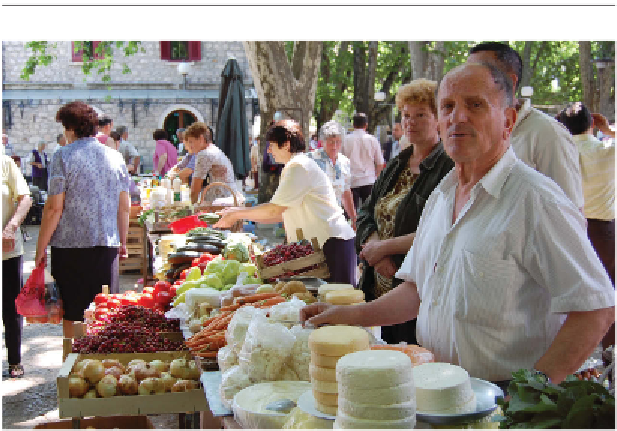Travel Reference
In-Depth Information
Trebinje just beyond. Despite warnings from Croats in Dubrovnik, I found
plenty past that lonely border.
As I entered bustling and prosperous Trebinje, police with ping-pong
paddle stop signs pulled me over to tell me drivers need to have their headlights
on at all hours. h e “dumb tourist” routine got me of the hook. I withdrew
cash at an ATM. Bosnia-Herzegovina's currency is called the “convertible
mark.” h e name goes back to the 1980s, when, like other countries with
fractured economies, they tied their currency to a strong one. It was named
In spite of what some said, Bosnia-Herzegovina's Trebinje not only exists, it thrives.
after the German mark and given the same value. Today, while Germany has
switched over to the euro, the original German mark lives on (with its original
exchange rate) in a quirky way in Bosnia. I stowed a few Bosnian coins as
souvenirs. h ey have the charm of Indian pennies and buf alo nickels.
Coming upon a vibrant market, I had to explore. h e produce seemed
entirely local. Honey maids eagerly of ered me tastes—as if each believed
her honey was the sweetest. Small-time farmers—salt-of-the-earth couples
as rustic as the dirty potatoes they pulled out of the ground that morning—
lovingly displayed their produce on rickety card tables. A tourist here was so
rare that there was nothing designed for me to buy. Coming from Croatia, I
was primed to think of Serbs as the villains. Wandering through the market,
I saw only a hardworking community of farmers of ering a foreigner a warm
if curious welcome.















































































